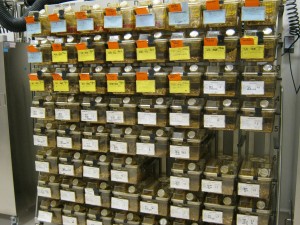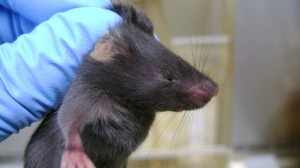Rollin’s (1994) Ethical Concern:
- Animals used by humans should still live according to its nature
- Therefore research mice and rat to express their “telos” and do what these animals do in the wild
- kept in shoebox sized transparent cages
- corncob bedding
- fabric nesting material
- metal food hopper filled with food pellets
- water bottle or a metallic sipper connected to automatic water dispensing piping
- cages attached to a ventilation system
- room temperature, humidity, photo-period, and air pressure were all kept at the optimal for experimentation
Advantages: provide steady supply of survival necessities and keeps them away from predators and the harshness of extreme abiotic factors
Disadvantages: prevention of natural behaviours such as forage, possession of distinct territories for males, and escape from male courtship and harassment for females
Pathological Effects: stereotypical behaviours such as running around in the typical figure-8 pattern, and flipping up and down the metal food hoppers
Breeder Specific Issues: Pairs are set up according to their genetic composition instead of normal courtship, sometimes paired animals have no will to copulate.
E.g. One female could not flee from the aggressive pursuit of male and ended up biting the male’s genitals off in anxiety
Is Artificial Selection and/or Genetic Modification Natural?
- Creation of genetically identical lines of animals require inbreeding (breeders are siblings)
- In nature: inbreeding decreases genetic diversity is often naturally selected against to decrease the chance of genetic condition caused by deleterious recessive allele recombination


